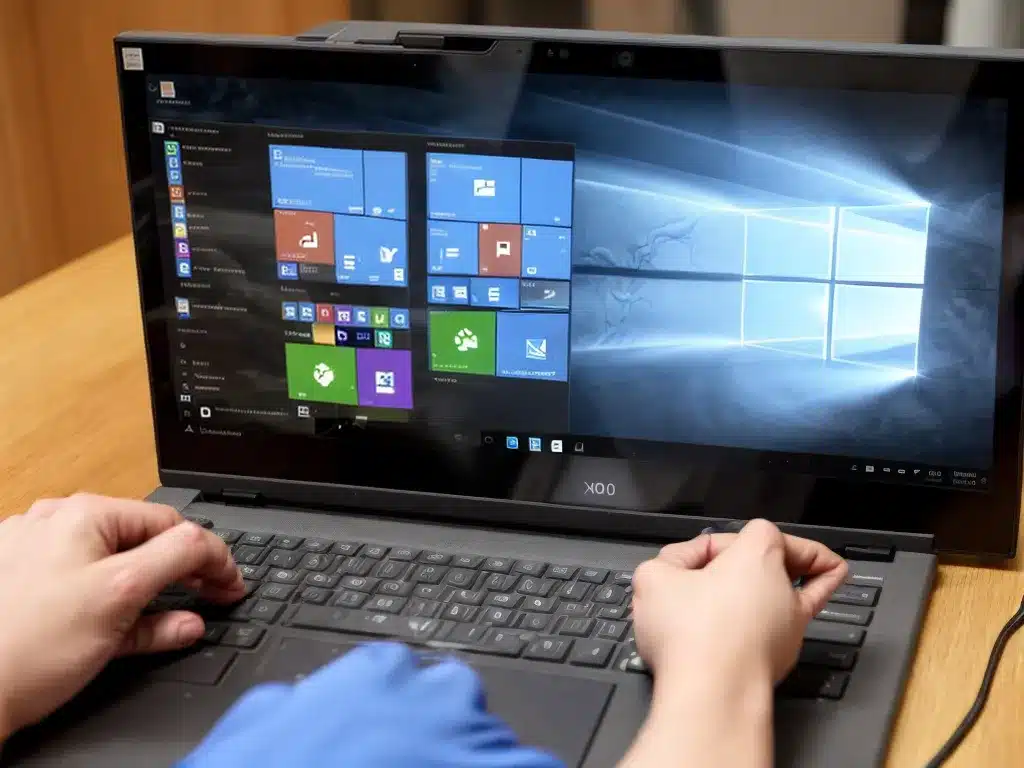
Random crashes can be incredibly frustrating when using your Windows 10 PC. However, there are several troubleshooting steps you can take to diagnose and resolve these crashes. Here is a comprehensive guide on how to fix random PC crashes in Windows 10.
Diagnose The Cause Of The Crashes
Determining the cause of the crashes is the first step towards resolving the issue. Here are some things you can try to narrow down the culprit:
Check The Event Viewer
The Windows Event Viewer provides detailed information about system events and errors. Check the System, Application, and Hardware Events logs around the time of the crashes for clues. Error messages related to device drivers crashing or critical system processes terminating can point to potential causes.
Monitor Temperatures With Hardware Monitor Tools
Overheating components like the CPU and GPU can cause crashes. Download tools like Speccy or HWMonitor to check if temperatures spike before a crash occurs. Consistently high temperatures may indicate inadequate cooling or a failing fan.
Perform Clean Boot And Driver Verifier
Perform a clean boot to isolate the issue to third-party startup programs. You can also enable Driver Verifier to check for faulty drivers. If the crashes stop, you’ve identified the problematic software.
Stress Test Hardware With Benchmarks
Use CPU, GPU, and RAM benchmarking tools like Prime95, Furmark, and Memtest86 to stress test your hardware. If the PC crashes during the tests, it could indicate failing hardware.
Fix Software And Driver Issues
If you’ve pinpointed a software or driver conflict as the cause, try these solutions:
Update or Reinstall Drivers
Download the latest drivers from your hardware manufacturer’s website. Reinstalling drivers can also fix corruption issues. Use Device Manager to uninstall devices and let Windows reinstall the drivers.
Disable Overlays and Background Software
Gaming overlays, antivirus software, RGB lighting utilities can cause conflicts. Disable them and minimize background apps to isolate the problem.
Roll Back Recent Updates
Problematic Windows or driver updates can cause crashes. Roll back updates in Windows Update settings if the issues started after an update.
Scan For Malware
Malware and viruses can corrupt system files leading to crashes. Run a full system scan with your installed antivirus software or the built-in Windows Defender.
Fix Hardware Issues
For hardware-related crashes, the following steps may help:
Check Connections, Reseat Components
Loose RAM, GPU, storage drives, and cables can cause crashes. Open up your PC, inspect connections, reseat components, and reconnect cables firmly.
Test and Replace Failing Hardware
If a specific component like the RAM or GPU is suspected, replace it with a known good spare part for testing. Failing hardware will need to be replaced.
Add or Upgrade Cooling
If overheating is the issue, improve cooling by adding more fans, reapplying thermal paste, clearing dust buildup, or upgrading the CPU cooler or case fans.
Disable Overclocking
Unstable overclocking of the CPU, RAM or GPU can lead to crashes. Reset BIOS settings to default or reduce overclock values. Stress test to check stability.
Prevent Future Crashes
To help avoid random crashes in the future:
- Keep Windows and drivers updated
- Only install trusted software and device drivers
- Monitor system temperatures regularly
- Don’t overtax the hardware capabilities
- Use reputable PC components from quality manufacturers
- Maintain adequate cooling and airflow
- Backup data regularly in case of hardware failure
By methodically troubleshooting the issue and addressing the root cause, you can resolve the random crashes plaguing your Windows 10 PC. Stress testing hardware and software, monitoring temps, isolating faulty drivers, replacing failing parts, and improving cooling are key steps towards achieving a stable system.












